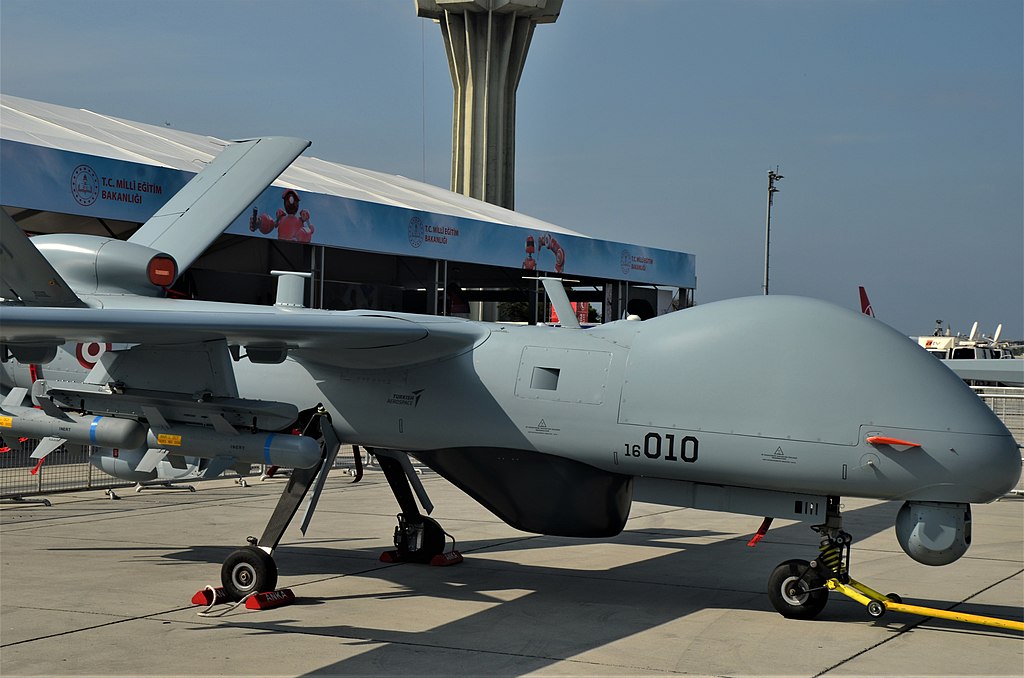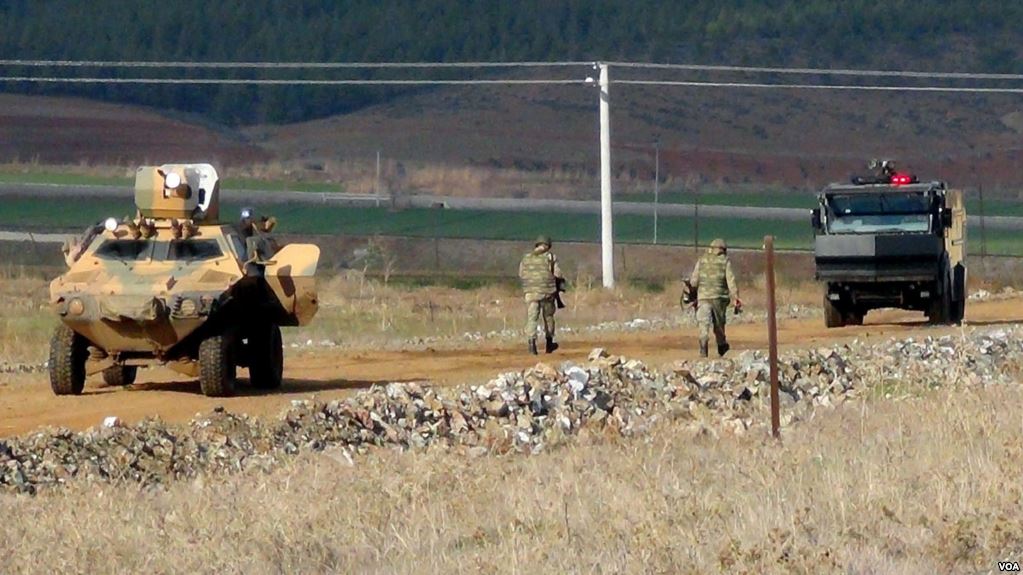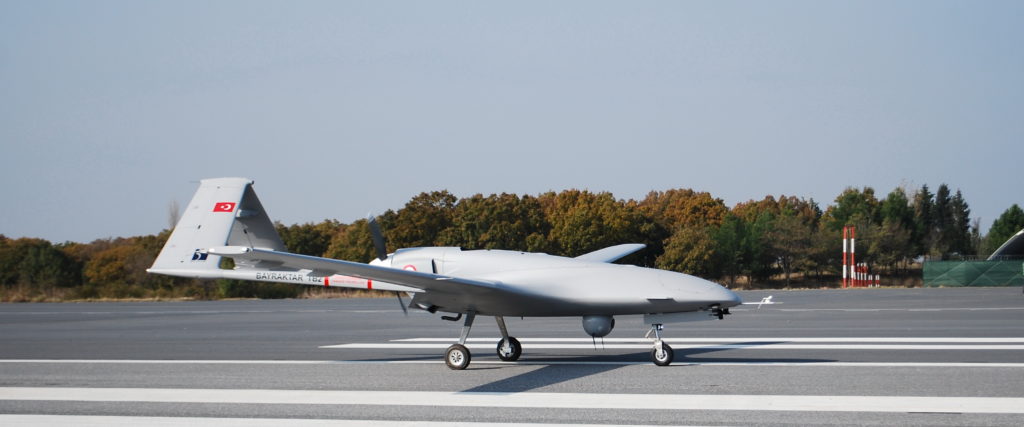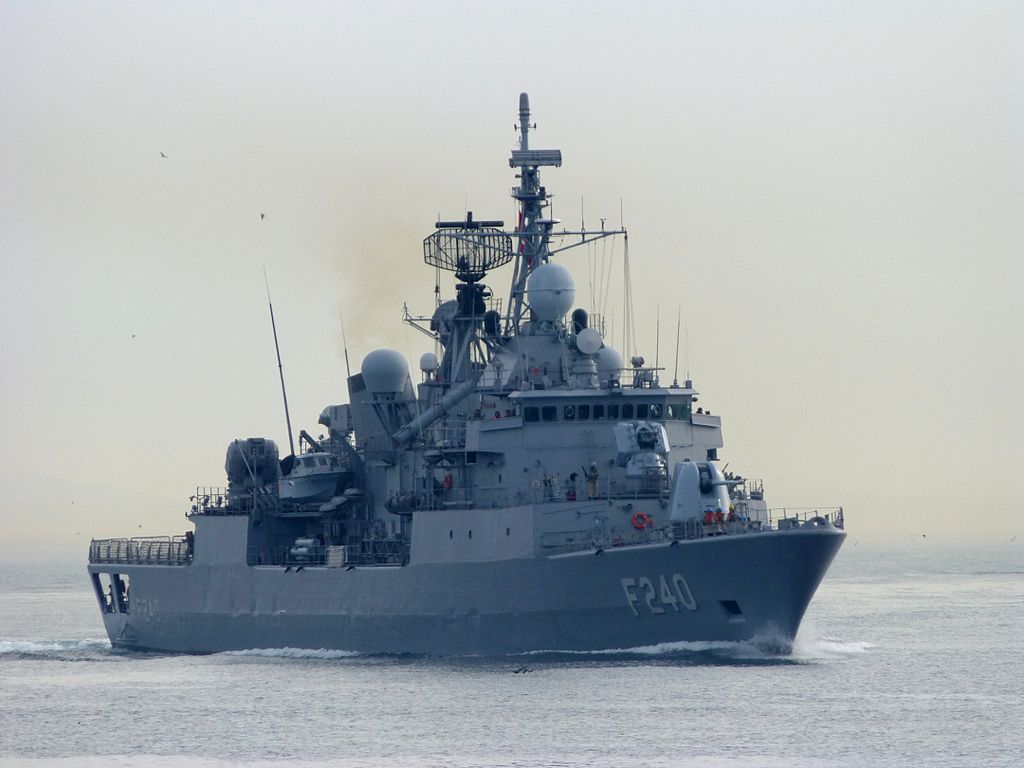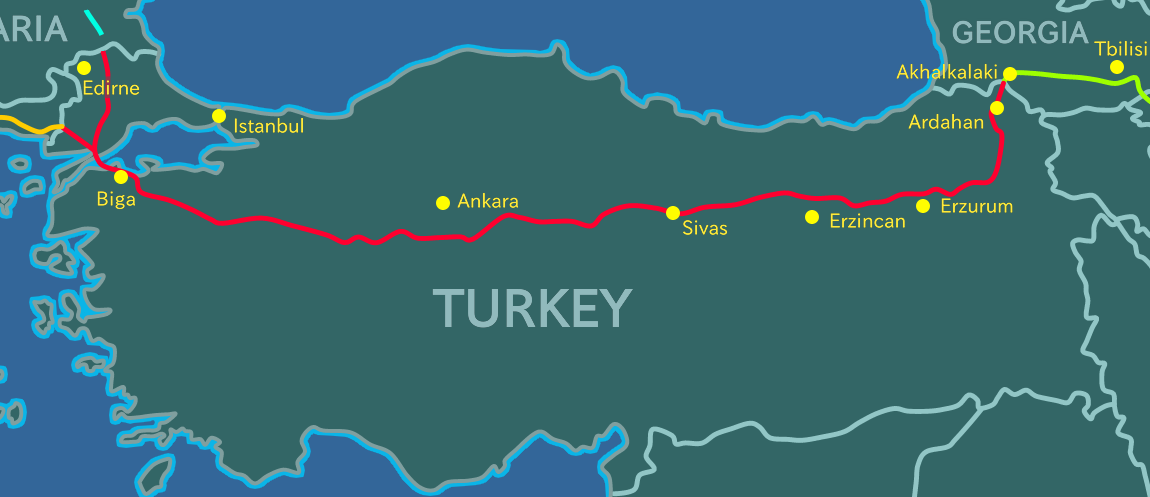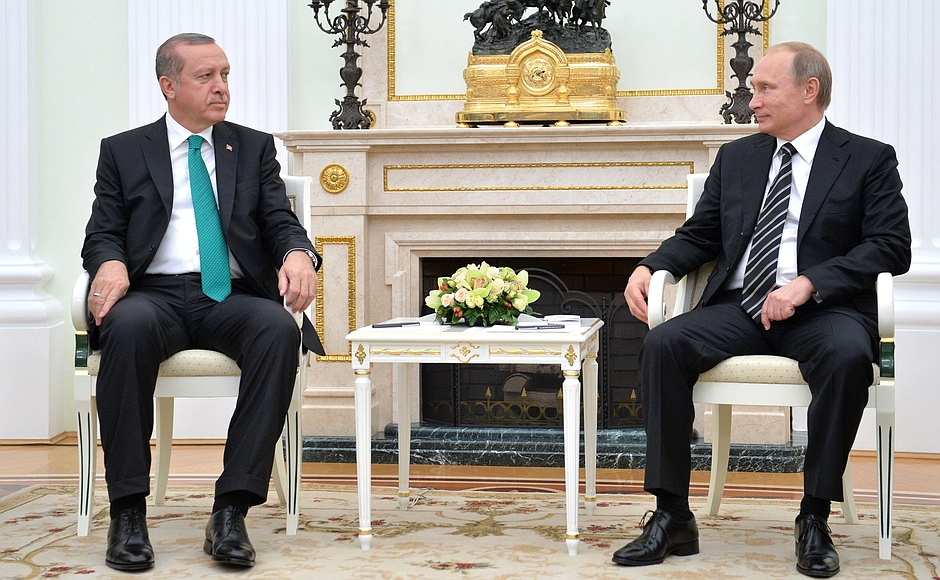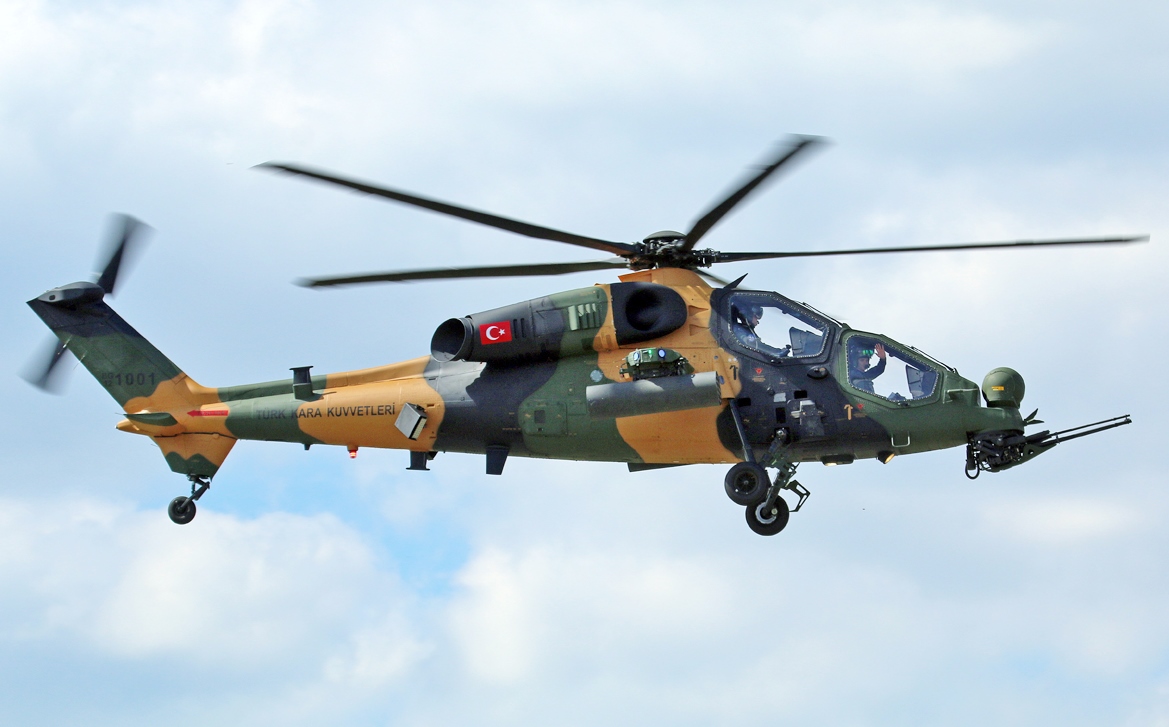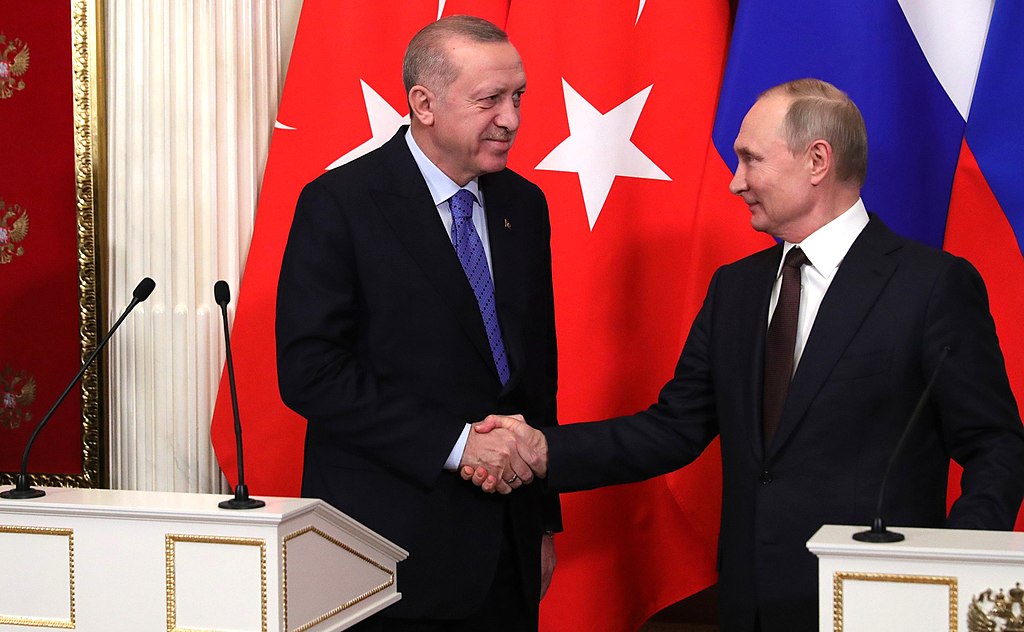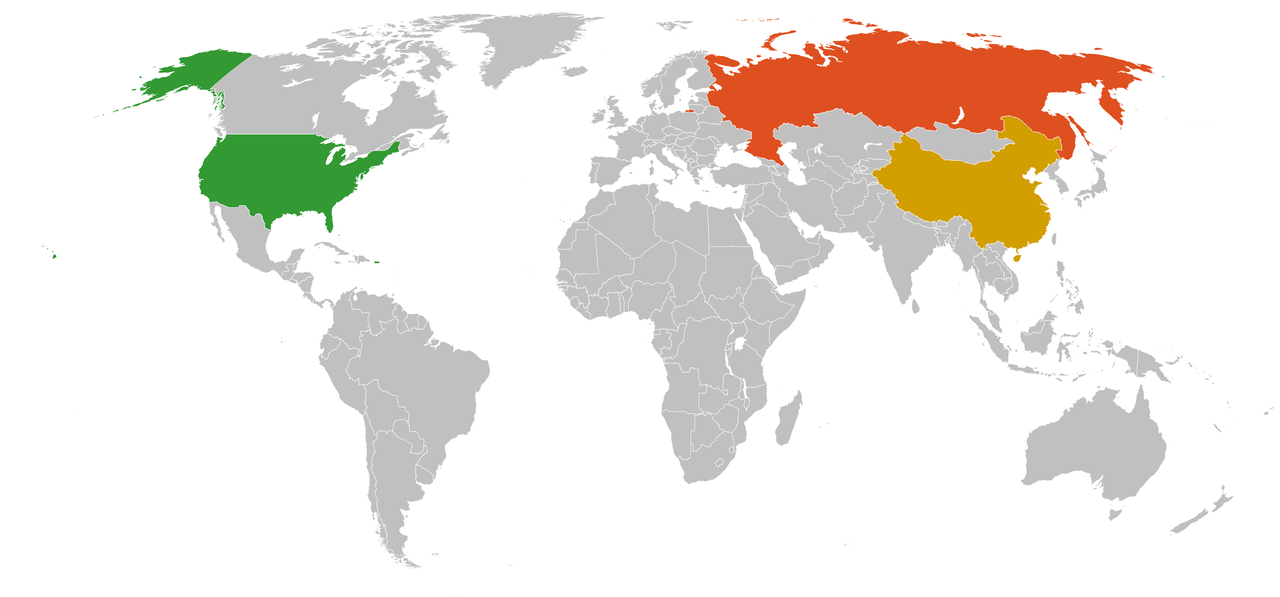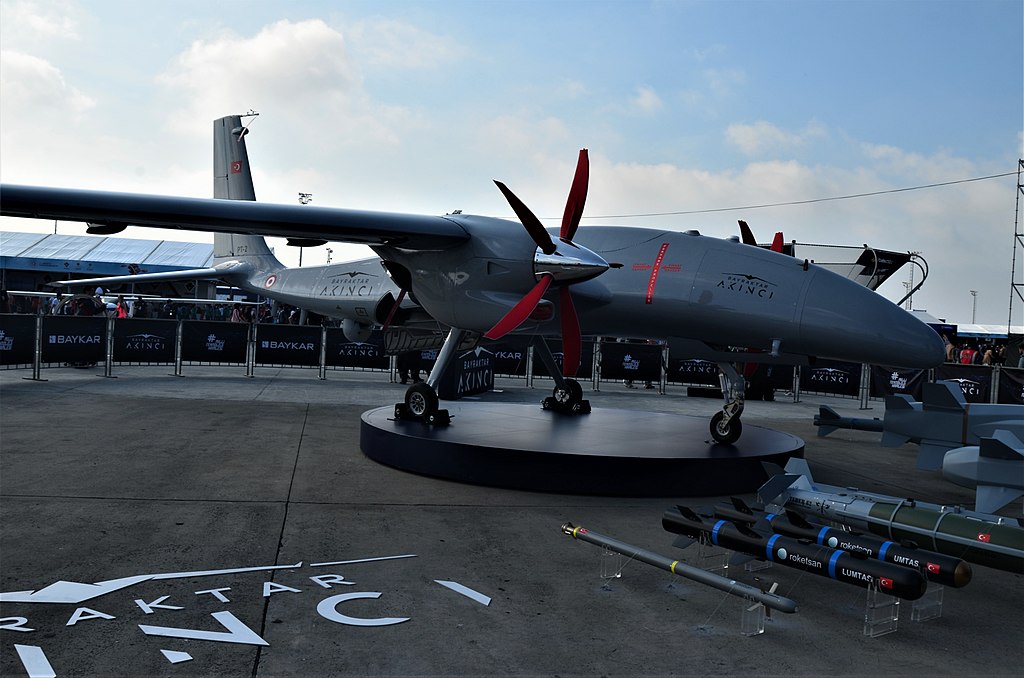
Unmanned combat aerial vehicle Akıncı of Bayraktar at Teknofest 2019.
“Within its framework, it is planned to sign a number of agreements, and also announced the intention to establish the production of Bayraktar-Akinchy heavy drones in Azerbaijan.”
The accompanying excerpted article from the independent Russian-language website Kavkazskiy Uzel provides a regional analysis of how Azerbaijan balances its security cooperation with Turkey and Russia. It also discusses Azerbaijan’s recent purchase of the Turkish-made Akinci drone. The article reports on Teknofest being hosted in Azerbaijan, noting that this was the first time the festival took place outside of Turkey. It points out that Turkey and Azerbaijan signed a number of agreements there. It also notes the delivery of the Bayraktar Akinci drone to Azerbaijan and that Turkey “will transfer production technologies” to Azerbaijan. The Akinci has better capabilities than the Bayraktar TB2, which Azerbaijan currently has in its inventory.
The comments from analysts in the region provide more context for what Azerbaijan is looking for from Russia versus Turkey. Regional security analyst Shair Ramaldanov notes that security cooperation between Azerbaijan and Russia is mostly for the “repair of military equipment of Soviet and Russian production” and that “spare parts for this are supplied from Russia.” Political scientist Ilgar Velizade points out one key difference in Azerbaijan’s security cooperation with Turkey and Russia, specifically “in relations with Turkey, Azerbaijan aims at the joint production of new weapons; [whereas] in relations with Russia, Baku buys arms in the Russian Federation.” Political scientist Arastun Orujlu noted another difference between Turkey and Russia: that “Turkey does not yet produce tanks and military aircraft, so Baku will purchase this equipment from the Russian Federation. But in the field of high-tech, missile, helicopter weapons, Turkey is ahead of the Russian Federation.”
Overall, the Armed Forces of Azerbaijan have had various systems serviced by Russia in the past, even if relations between the two had been strained. While the article does not mention this, the war in Ukraine is having an impact on logistics for the Russian defense industry. Azerbaijan’s acquisition of the Bayraktar Akinci shows what it continues to look for in its security partnership with Turkey, which gave the country a specific capability that Russia could not.
Source:
“Аналитики сравнили военно-техническое сотрудничество Баку с Анкарой и Москвой (Analysts compared military-technical cooperation of Baku with Ankara and Moscow),” Kavkazskiy Uzel (independent Russian-language website with news from the Caucasus), 28 May 2022. https://kavkaz-uzel.eu/articles/377597/
Azerbaijan is hosting the Teknofest aviation, cosmonautics and technology festival, which is held outside of Turkey for the first time. Within its framework, it is planned to sign a number of agreements, and also announced the intention to establish the production of Bayraktar-Akinchi heavy drones in Azerbaijan. Military cooperation between Baku and Ankara is unlikely to interfere with cooperation with Moscow, since it is about the supply of various types of weapons, analysts interviewed by the “Kavkazskiy Uzel” noted…
The organizers of the festival are the Turkish Technology Team Foundation (T3), the Ministry of Digital Development and Transport of the Republic of Azerbaijan and the Ministry of Industry and Technology of Turkey…Within the framework of the festival, Turkey and Azerbaijan are planning to sign a number of agreements, Turkish Minister of Industry and Technology Mustafa Varank told the Anadolu Agency.
The most significant achievement of the festival in Baku is the flight of the new Turkish heavy strike-reconnaissance U“V “Bayraktar-Akin”hi” from Turkey through the airspace of Georgia to Baku without an intermediate landing. The UAV covered 3200 km. This aircraft is much larger, better armed, flies longer and higher, and is capable of carrying more weapons than its predecessor, Bayraktar-TB2, which Azerbaijan used in the 2020 Autumn War…Ankara will transfer production technologies to the Azerbaijani side.
…On February 22, 2022, the Declaration on Allied Cooperation between Azerbaijan and the Russian Federation was signed in Moscow. The document says that the parties are developing bilateral military-political cooperation that meets national interests and is not directed against third countries…They cooperate on issues of equipping with modern weapons and military equipment, as well as in other areas in this area of mutual interest…Military expert Shair Ramaldanov told t“e “Caucasian K”ot” correspondent that the military-technical cooperation between Azerbaijan and the Russian Federation did not stop. It consists, according to him, primarily in the repair of military equipment of Soviet and Russian production and the restoration of weapons damaged during the hostilities. Spare parts for this are supplied from Russia…
…Political scientist Ilgar Velizade told t“e “Caucasian K”ot” correspondent that the Azerbaijani-Turkish and Azerbaijani-Russian military-technical cooperation differs in at least one fundamental poin“. “If in relations with Turkey, Azerbaijan aims at the joint production of new weapons, then in relations with Russia, Baku buys arms in the Russian Federati”n,” he said.
…Political scientist Arastun Orujlu compared the expected arms supplies to Azerbaijan from Turkey and Russi“. “Turkey does not yet produce tanks and military aircraft, so Baku will purchase this equipment from the Russian Federation. But in the field of high-tech, missile, helicopter weapons, Turkey is ahead of the Russian Federation, he told t“e “Caucasian K”ot” correspondent…
Image Information:
Image: Unmanned combat aerial vehicle Akıncı of Bayraktar at Teknofest 2019.
Source:https://commons.wikimedia.org/wiki/File:BayraktarAk%C4%B1nc%C4%B1_Teknofest2019_(3).jpg
Attribution: CC BY YA 4.0

